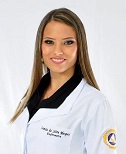Abstract
Aim: to identify, according to the perception of nursing students, whether the technical visits contribute to training and management in nursing. Method: this is a descriptive study whose data has been obtained in semi-structured interviews with eleven (11) students of the nursing undergraduate course. After transcribing the interviews, we used content analysis. Results: The technical visit is an effective tool in the teaching and learning of the nursing administration process. It assists scholars in the perception of the relation between theory and practice, provides the development of a critical and reflexive view in terms of reality and fosters awareness regarding the relation between management and nursing care/patient care. Conclusion: The technical visit was considered an effective teaching tool to promote an approach to the reality of the labor market by decreasing the distance between theory and practice.References
Mourão LC, L'Abbate. Teaching implications in curricular transformations in the field of Health: a socio-historical analysis. Online braz j nurs [periodic online]. 2011 Dez [cited 2015 Mar 16]; 10(3). Available from: http://www.objnursing.uff.br/index.php/nursing/article/view/3423/1136.
Baldwin A, Bentley K, Langtree T, Mills J. Achieving graduate outcomes in undergraduate nursing education: following the Yellow Brick Road. Nurse education in practice. 2014; 14(1):9-11.
Oermann MH. Technology and Teaching Innovations in Nursing Education: Engaging the Student. Nurse educator. 2015; 40(2):55-56.
Santos ADBD, Oliveira KKDd, Rosário SSDd, Lira ALBdC, Tourinho FSV, Santos VEPd. Strategies for teaching learning process in nursing graduate and Postgraduate nursing. Rev pesqui cuid fundam (Online). 2014; 6(3):1212-20.
Nascimento ACEC, Pinto ALR, Pereira CRA, Souza FEP, Vieira ZRS, Andrade GDB, et al. A Importância da Supervisão de Enfermagem nas Instituições de Saúde. Saúde e Pesquisa. 2013; 6(2):339-343.
Santos JLG, Prochnow AG, Silva DC, Cassettari SSR, Guerra ST, Erdmann AL. Managerial communication in hospital nursing: obstacles and how to overcome them.Online braz j nurs [periodic online]. 2012 Aug [cited 2015 Mar 16]; 11(2):392-407. Available from: http://www.objnursing.uff.br/index.php/nursing/article/view/3761.
Lombardo PG, Silva PAC, Gerbassi CAB, La Cava ÂM, Chaves RI. Gerenciamento de Sinistro no Ambulatório de um Hospital Universitário: Reflexão Bibliográfica. Revista Acreditação. 2011; 1(1):101-23.
Nunes SC. O ensino em administração: análise à luz da abordagem das competências. Revista de Ciências da Administração. 2010; 12(28):198-223.
BARDIN, L. Análise de Conteúdo. 6. ed. São Paulo: Edições 70, 2011.
Sampaio LR, Pereira MAT, Jesus MLD, Pinheiro FA, Ribeiro MS, Menezes AHN, et al. Núcleos Temáticos: uma proposta pedagógica interdisciplinar para o ensino superior. Cadernos de Educação. 2012; (37):185-205.
Kalinowski CE, Massoquetti RMD, Peres AM, Larocca LM, Cunha ICKO, Gonçalves LS, et al. Participative methods in teaching administration within nursing. Interface-Comunicação, Saúde, Educação. 2013; 17(47):959-67.
Liaw SY, Koh Y, Dawood R, Kowitlawakul Y, Zhou W, Lau, ST. Easing student transition to graduate nurse: a simulated professional learning environment (SIMPLE) for final year student nurses. Nurse Education Today. 2014; 34(3):349-355.
Fortunato RA, Neffa E, Miranda MG. Potencialidades das visitas técnicas para o desenvolvimento de competências: o caso da horta comunitária do morro da coroa. Revista Ambiente e educação. 2012; 17(1):29-45.
Paim AS, Iappe NT, Rocha DL. Metodologias de ensino utilizadas por docentes do curso de enfermagem: enfoque na metodologia problematizadora. Enfermería Global. 2015; 14(01):153-169.
Silva, MDC, Alves, KDS, Guarda, VLDM. A capacitação como propulsor da humanização nos meios de hospedagens. Revista Conexão UEPG. 2012; 8(1):100-109.
Hatlevik IKR. The theory‐practice relationship: reflective skills and theoretical knowledge as key factors in bridging the gap between theory and practice in initial nursing education. Journal of advanced nursing. 2012; 68(4):868-877.
Moreira F, Ferreira E. Teoria, prática e relação na formação inicial na enfermagem e na docência. Educação, Sociedade e Culturas. 2014; (41):127-148.
Wilson AME. New roles and challenges within the healthcare workforce: a Heideggerian perspective. Journal of Health Organization and Management. 2015; 29(1):2-9.
Silva JCD, Rozendo CA, Brito FMDM, Costa TDJG. A percepção do formando de enfermagem sobre a função gerencial do enfermeiro. Rev eletrônica enferm. 2012; 14(2): 296-303.
Ros CA. A contribuição das visitas de campo no ensino das ciências agrárias na UFRRJ. Revista Ciência em Extensão. 2012; 8(1):107-22.

